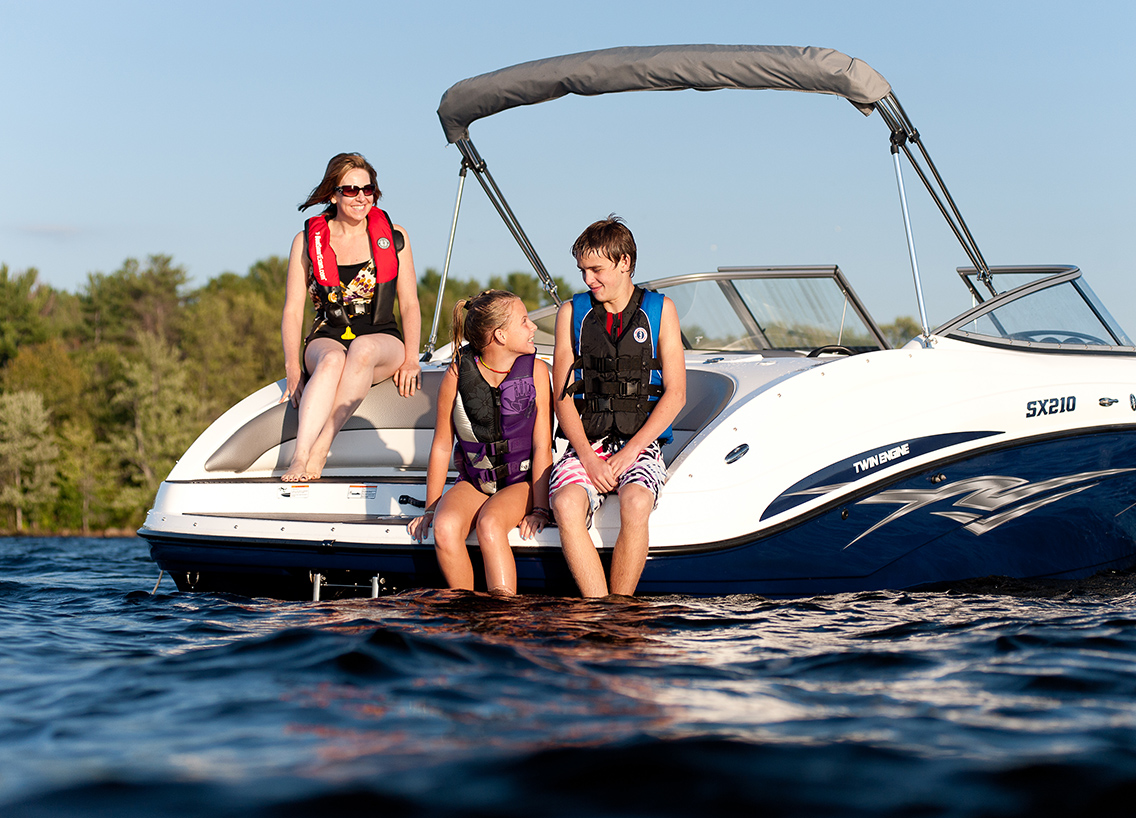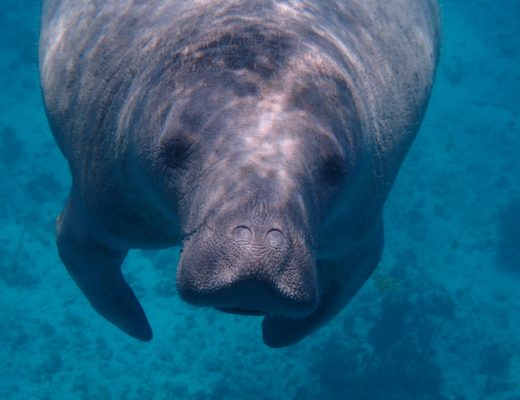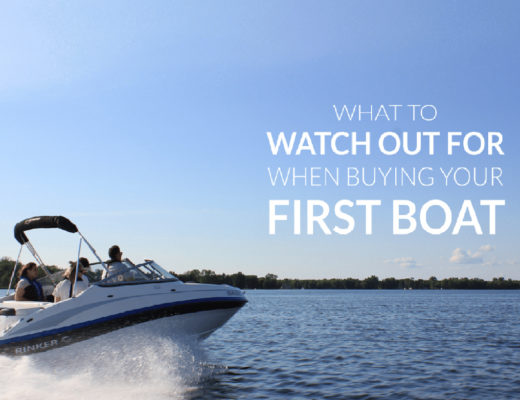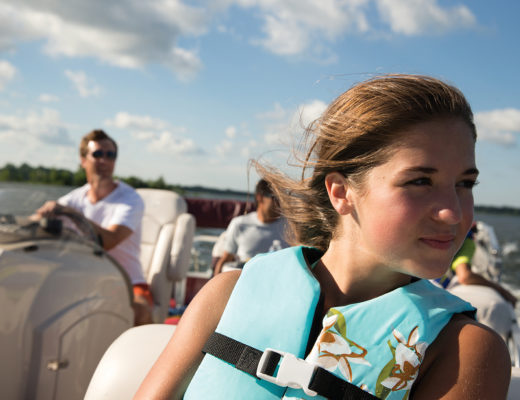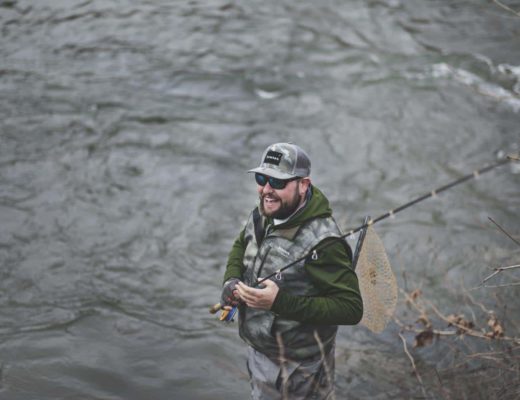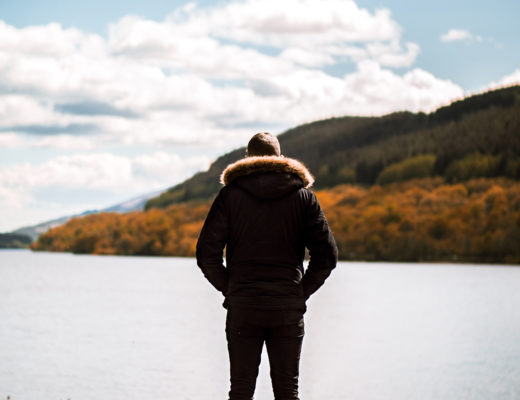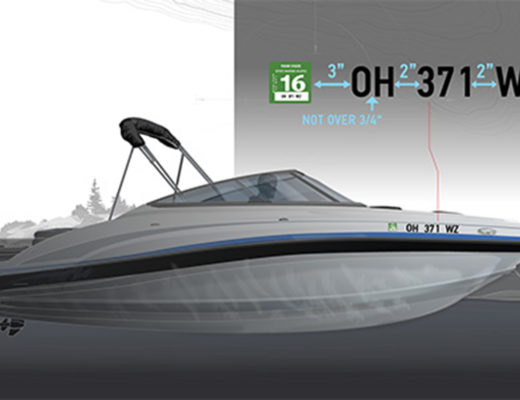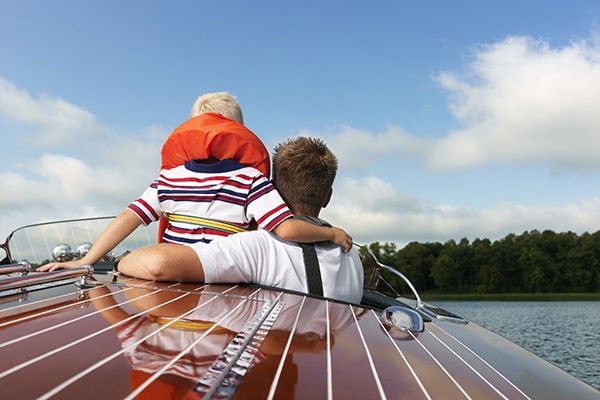
Protecting Your Boating Children This Summer is About More Than SPF 50+ Life Jackets and Adult Supervision…
We use car seats to transport our kids safely in vehicles, but what’s the safest way to transport our little ones in boats? They don’t make boat seats.
Read on to learn about keeping small children safe when you’re out on the water with your family. These are boating safety tips that should be put into into practice EVERYTIME children are on board your boat. No exceptions.
Boating With Infants (under 1 year old)
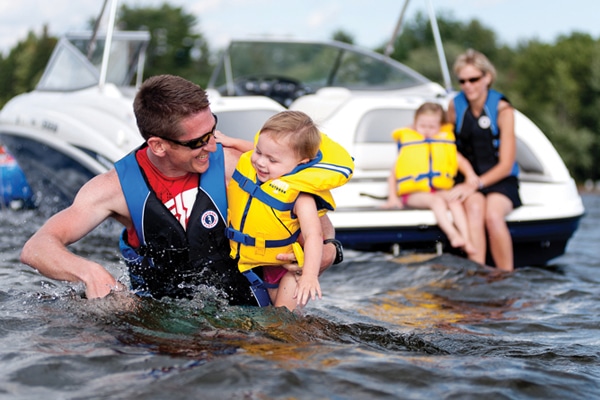
Straight up, newborn babies should NOT be boating. Until infants can properly fit into Canadian-approved life jackets, they should not be on the water at all. Not on a motorboat, fishing boat, kayak, sailboat, rowboat, or a canoe… no type of watercraft with an open deck will be safe enough for a baby that’s too small to wear a life jacket. No matter how carefully you’re operating the boat.
However, a size category does exist for infant life jackets, so you can have your baby on board once he or she reaches the minimum weight indicated on their infant life jacket label.
Tragically, boating accidents have occurred when vehicle-designed car seats have been used as ‘boat seats’ for babies. Think about it: If your boat crashed or flipped and there was a baby strapped into a car seat on board, the baby would likely sink quickly with the weight of the car seat and drown before their rescue would be possible. So parents, make sure you’re always holding your baby tightly during the boating trip and don’t operate your boat while holding your baby. Oh, that’s obvious? Good.
<br
Boating With Toddlers (1-3 years old)
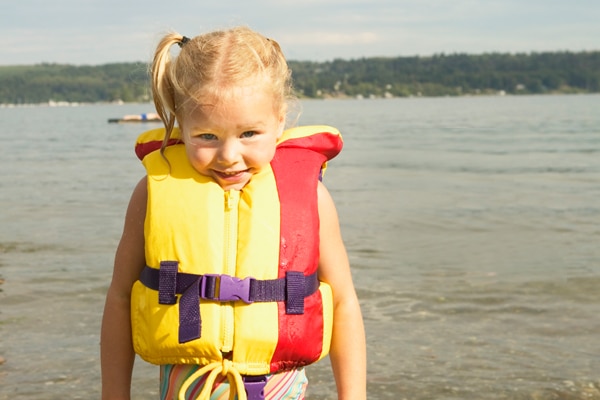
Toddlers fit properly into lifejackets, but children in this age bracket are still at high risk of falling overboard when ‘toddling’ around on the open deck of a boat. Always hold onto toddlers when you’re underway because their little bodies aren’t heavy enough for them to resist the hard bounce of the hull hitting waves or the unexpected blast of a strong wind. Always hang on tight to their life jacket straps!
This is a great age to begin your kids’ Boater Education! They’re starting to ask questions, right? Capitalize on their curiosity! If they’re interested in your boat safety equipment, then talk to them about it! Three-year olds are touching everything though, so put away any dirty or dangerous items, like anchors, fishing hooks or fuel tanks. Take them shopping for their lifejacket and explain to them while you’re shopping why wearing them is so important. Have fun with it – ask your kids to try a few on and jump around in them, or do the ‘champion dance’ (hands to the sky) so they can find the perfect fit that they’ll be comfortable in. Tip: If they reach up and the life jacket touches their ears – it’s too big!
Boating With Kids (3 years old or older)
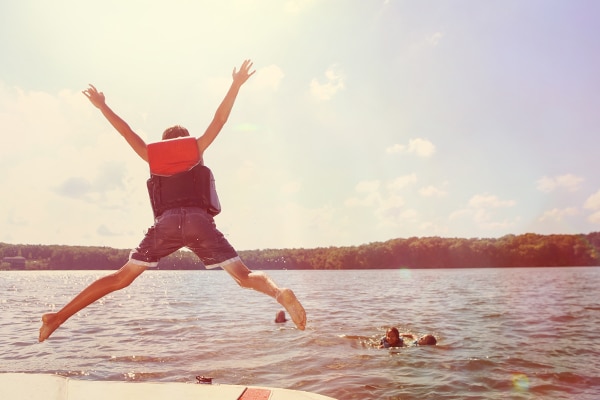
At this age, kids are OBSESSED with boating, boat trips, and boats. They’re now learning how to fish, they’re untying the ropes for you at the dock and they want to sit on your lap to help you ‘steer the ship’. This is essentially the beginning of the watersports decade too. Brace yourself: Your future will include the purchase of wakeboards, ropes and water-skis!
Kids are a little more independent at this age, so make sure their life jacket is properly zipped and buckled up if they put it on without your help. Attention to detail isn’t a skill you should expect from a 3-year old – I mean, they’re putting their shoes on the wrong feet, right? So double-check that life jacket zipper.
Remember, even if your child is too young to take their boating safety test and obtain their Canadian boating license, it doesn’t mean they shouldn’t start learning boating safety basics. It’s never too early to start! Use this as a rule of thumb – if your kids are leaning over the side of the boat and trying to drag their hands in the rushing water… it’s high time to talk about boating safety with your little captains. Starting with: Keep your hands and feet inside the boat at all times!
So, When Can My Children Legally Operate Our Family Boat?
Kids must be 12 years of age and have a boating license before they can operate a boat with an engine up to 40 hp without adult supervision. Have a Sea Doo at the cottage? Kids must be 16 years of age and have a boating license before they can legally operate a personal watercraft. Once they’re ready, you should register your older kids in a Boating Safety Course! Keep your family safe… and your boat unscathed.
Boating… Parents!
Safe, legal boating means a number of things. Starting with a boating safety education and obtaining a boating license. Be a boating mentor to your kids – throw on your life jacket, captain’s hat and teach your crew a new boating tip every time your family hits the lake! Involve your kids in the boating experience and they will become safe, confident boat operators!
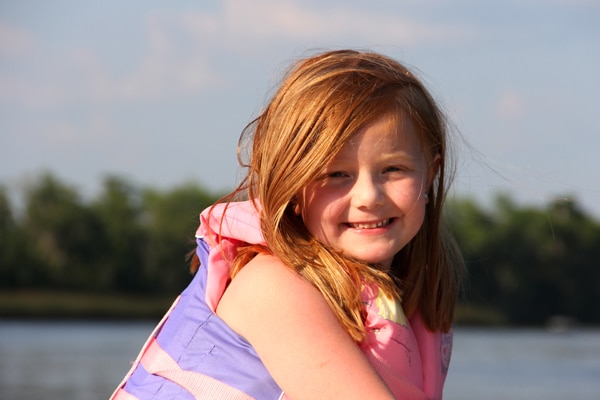
Enjoy teaching the youngest members of your family about the brilliant world of boating! Is there a better family pastime?!
